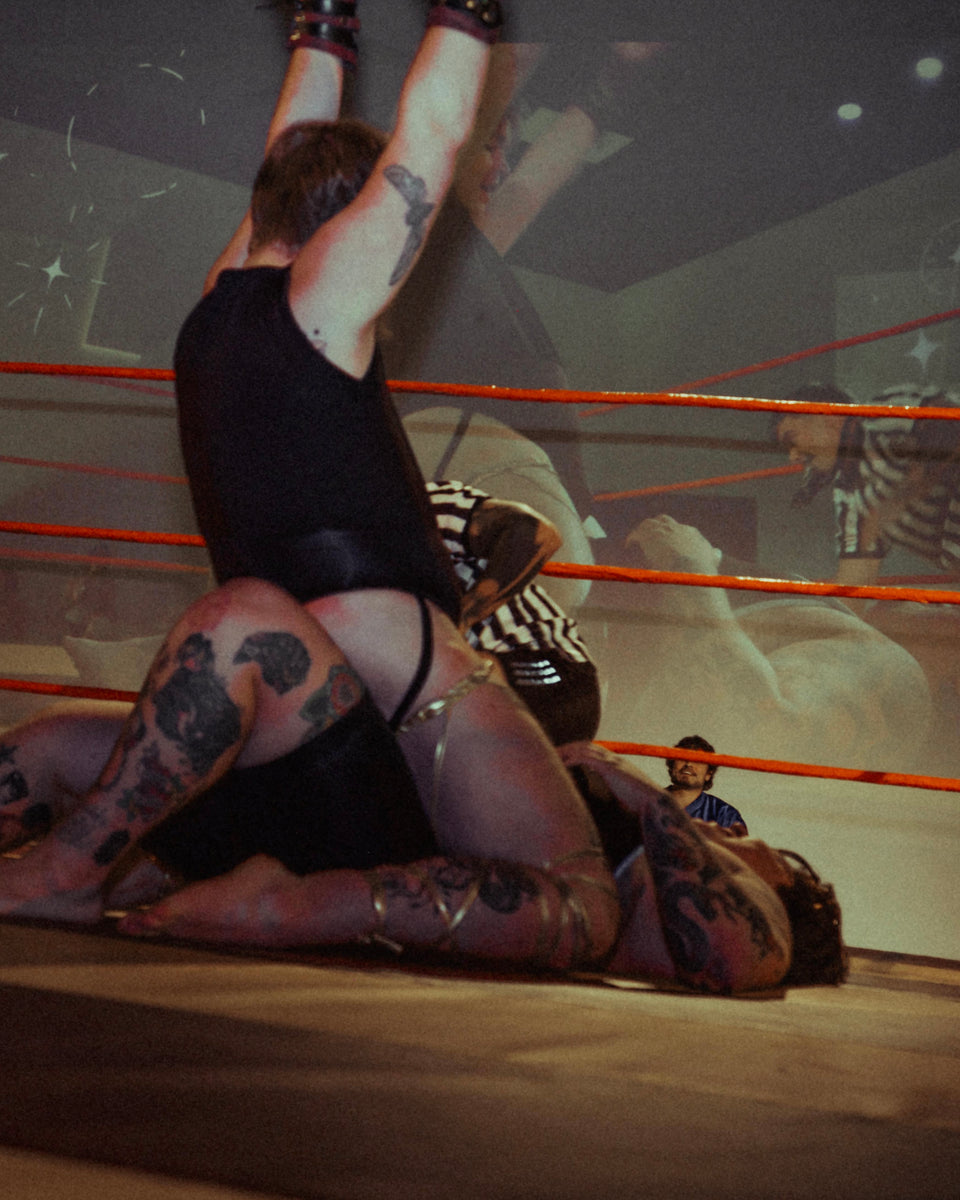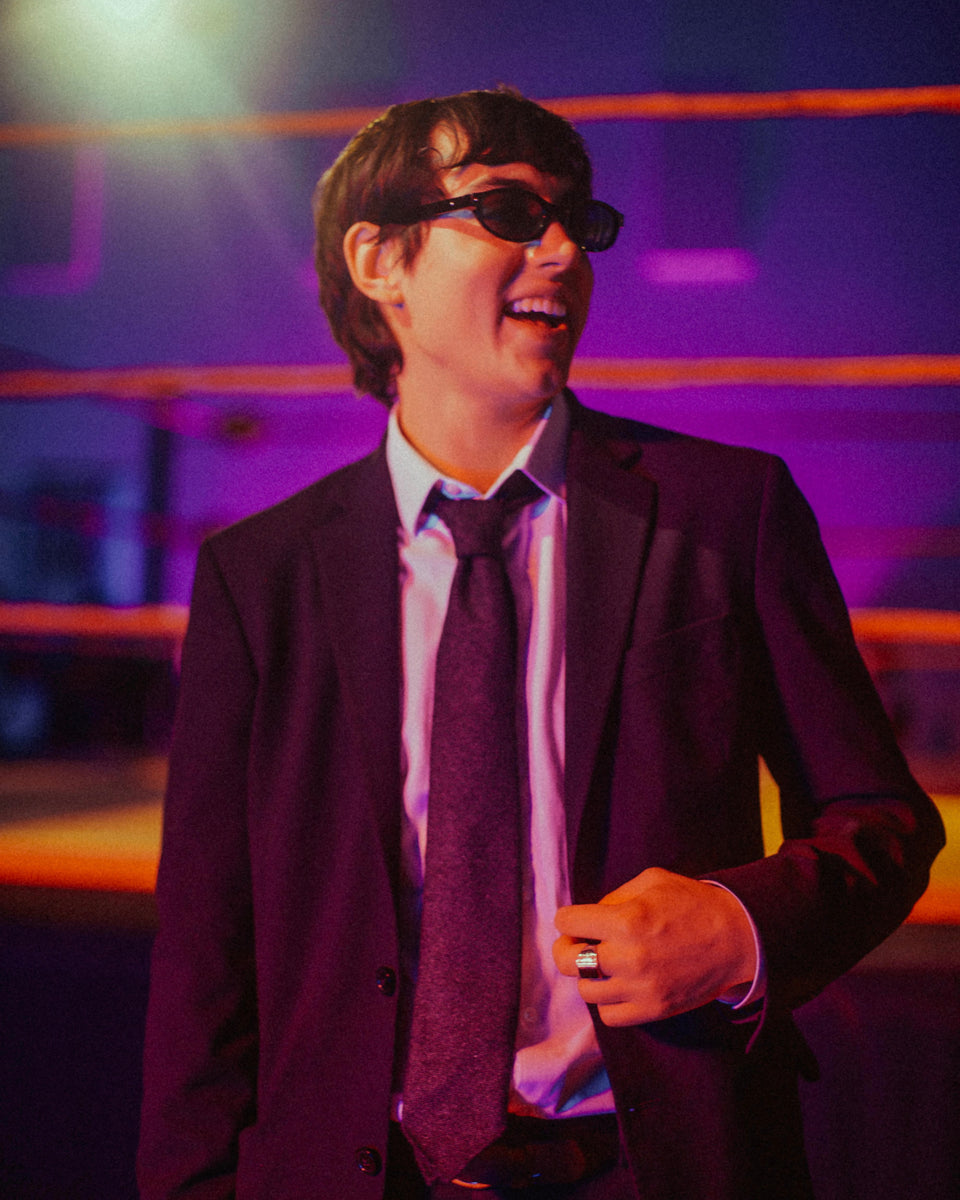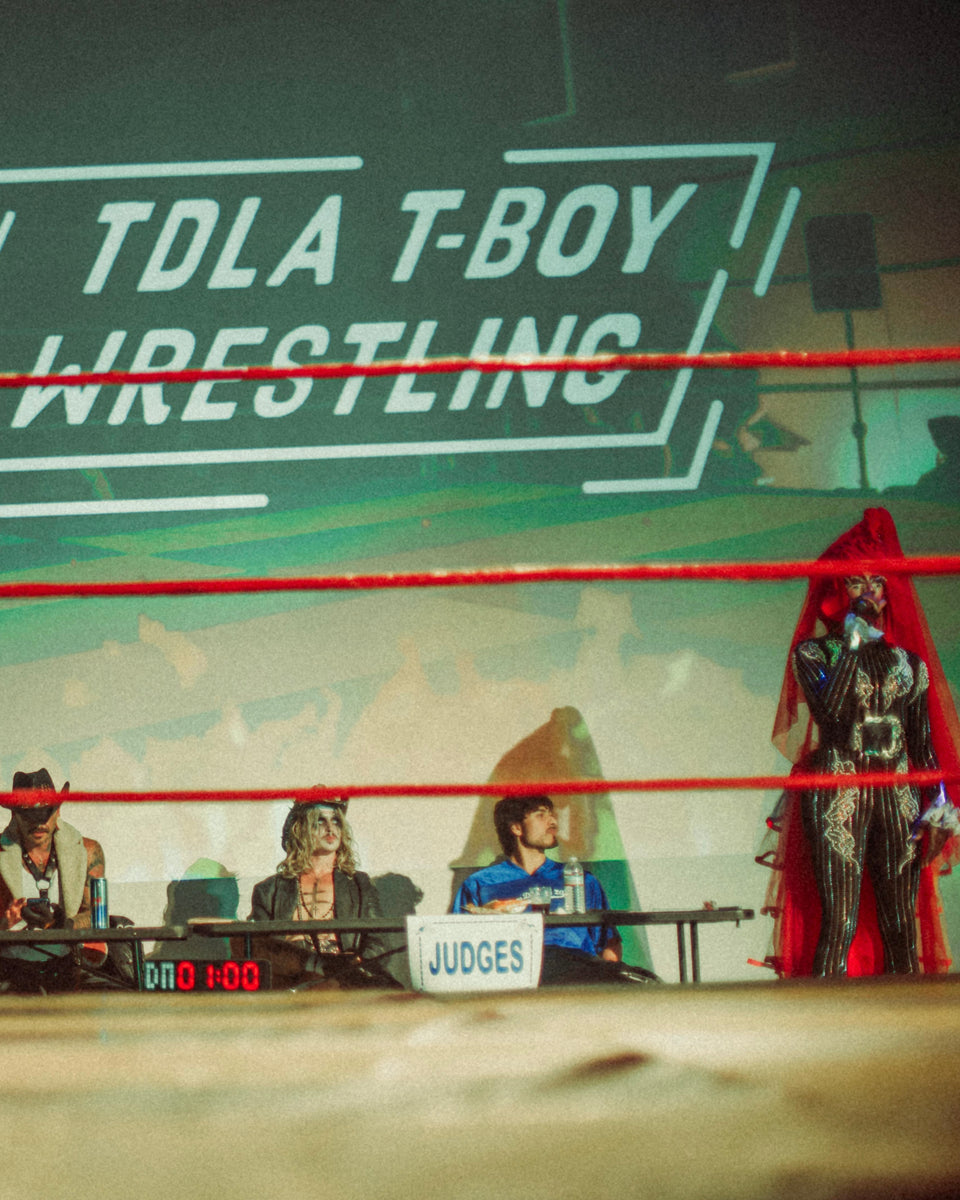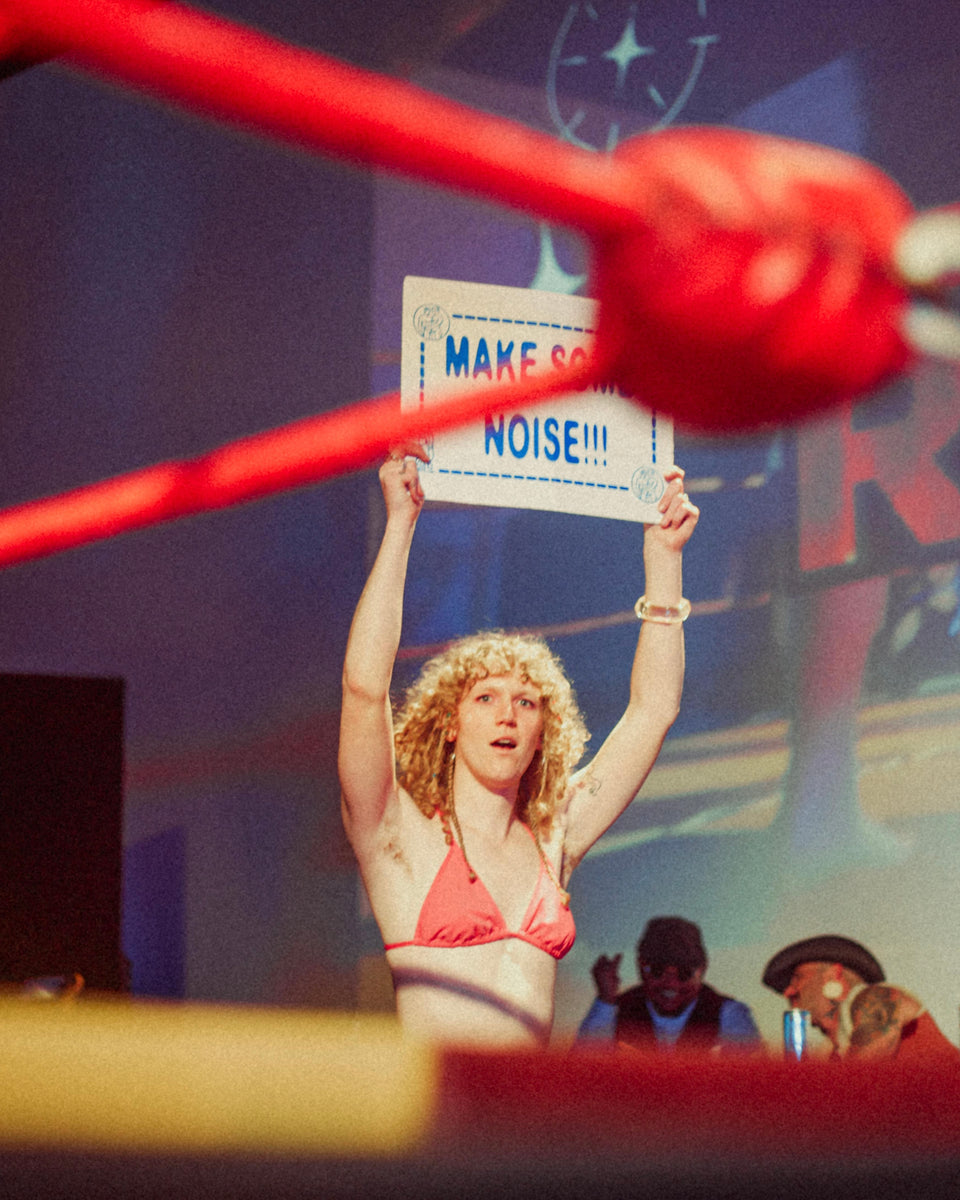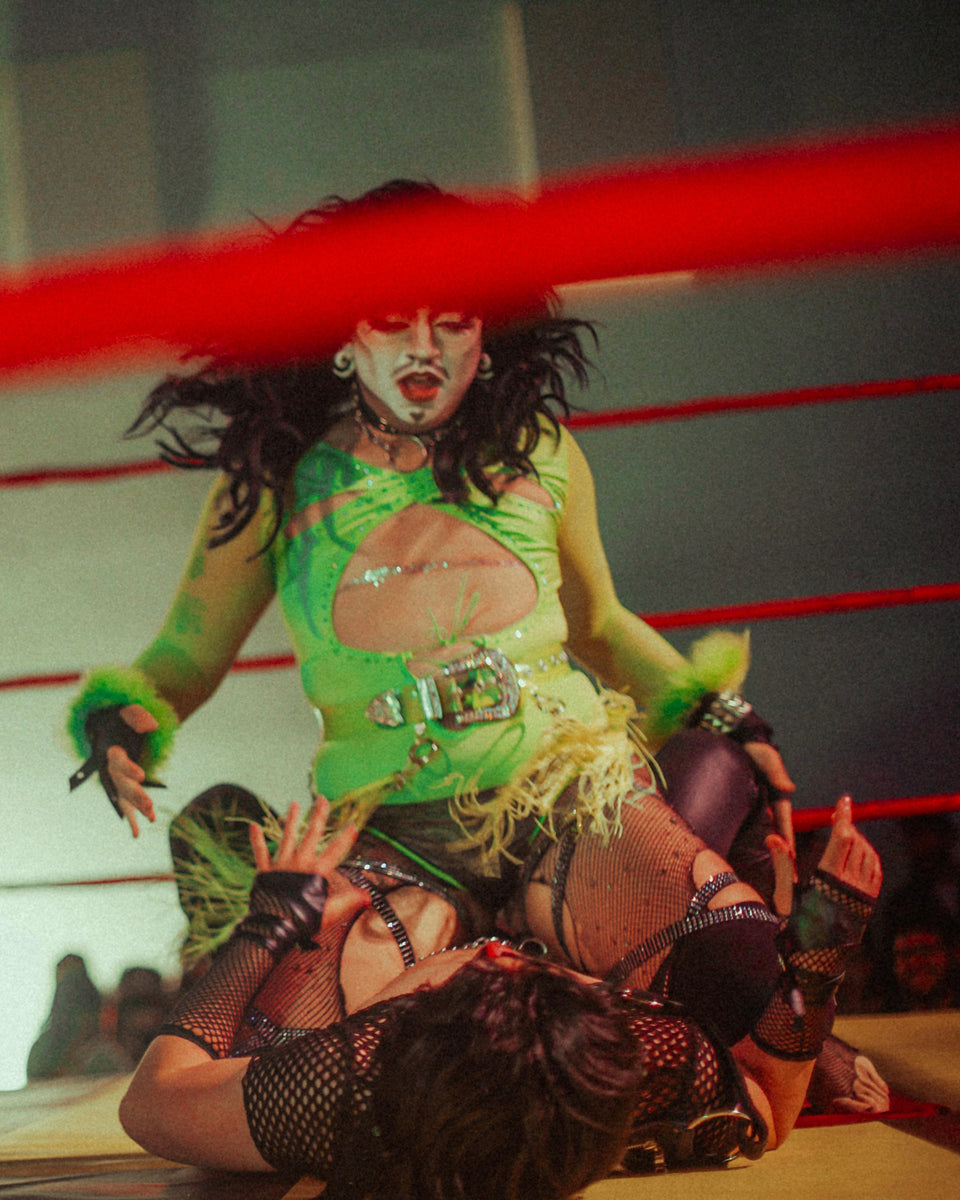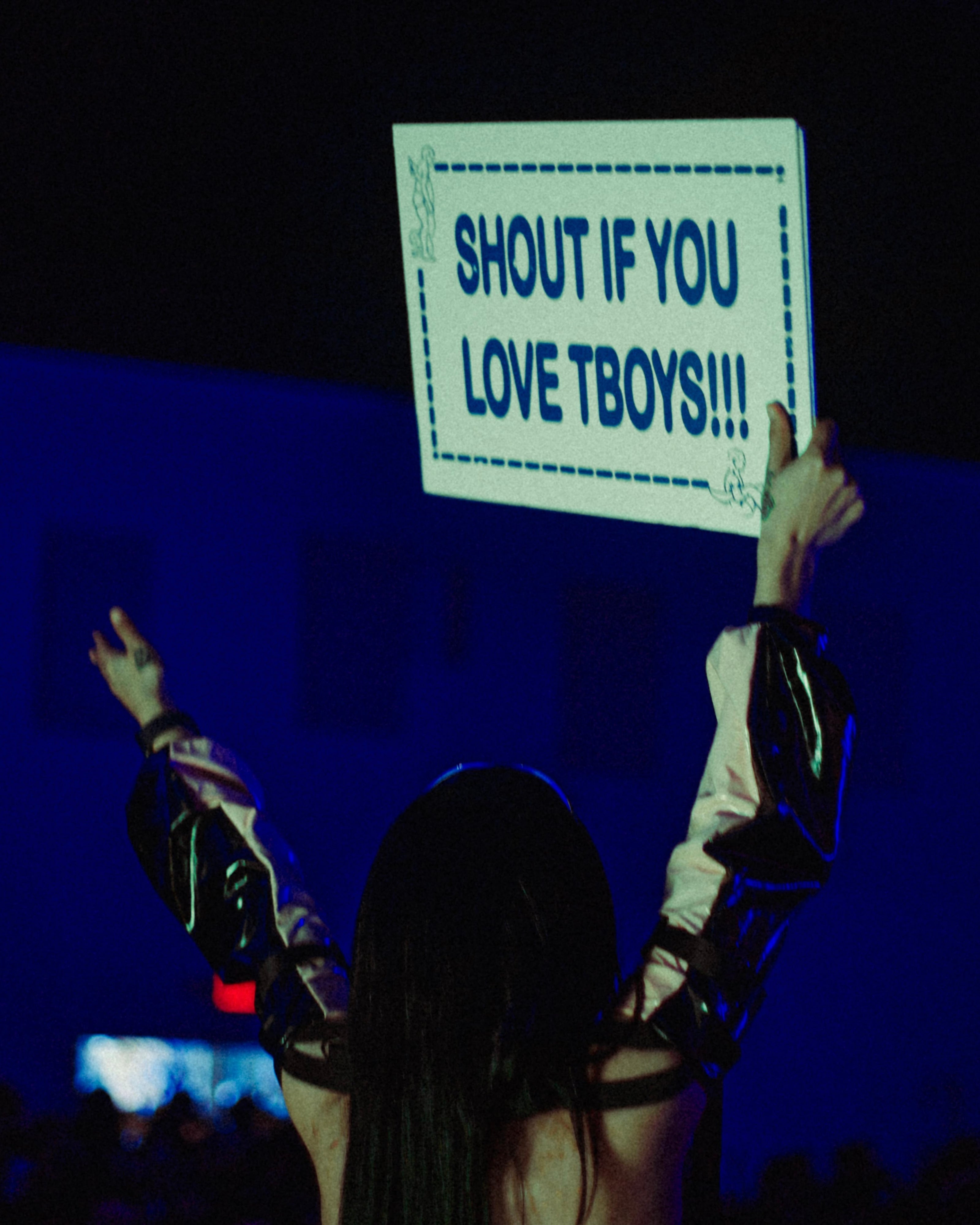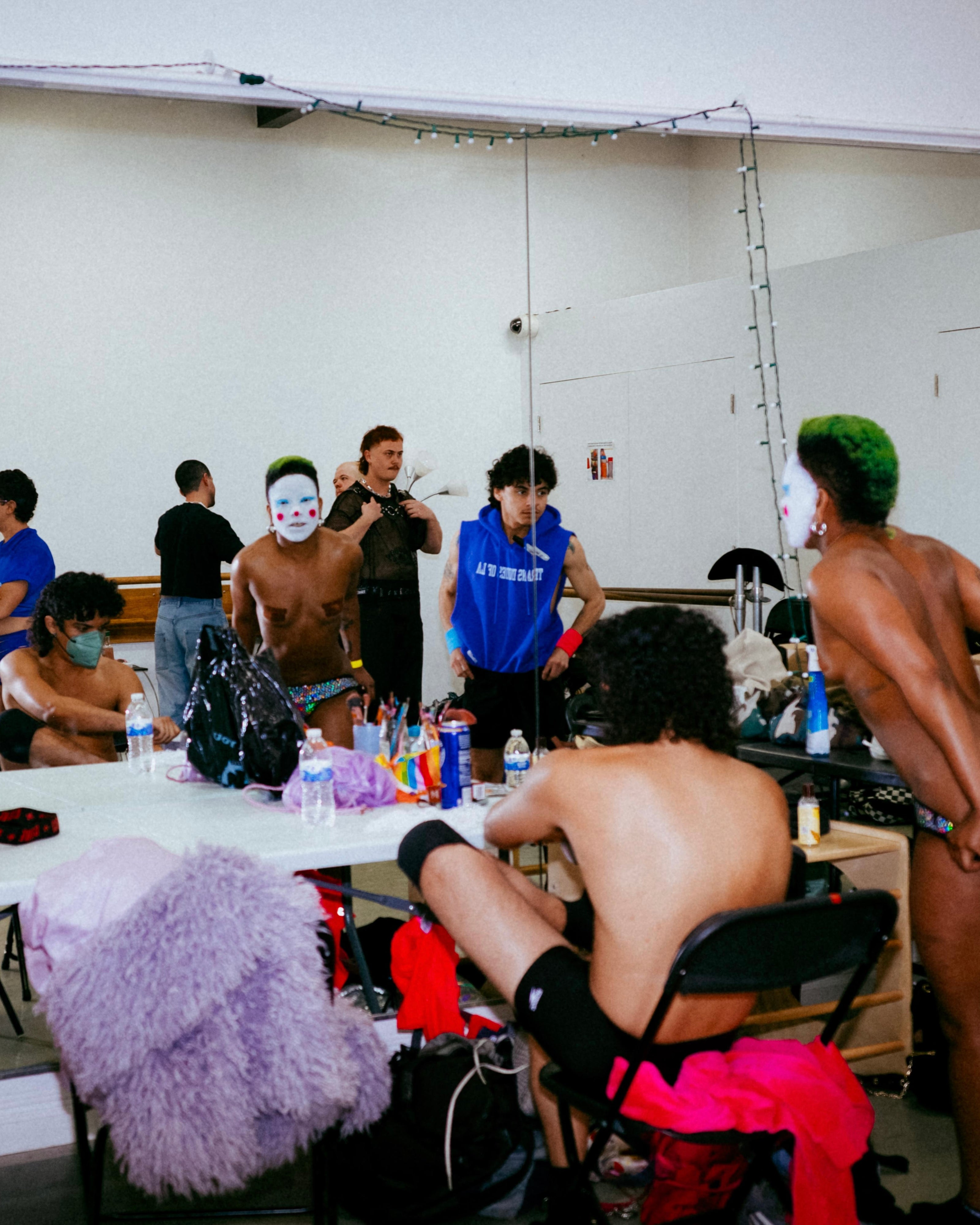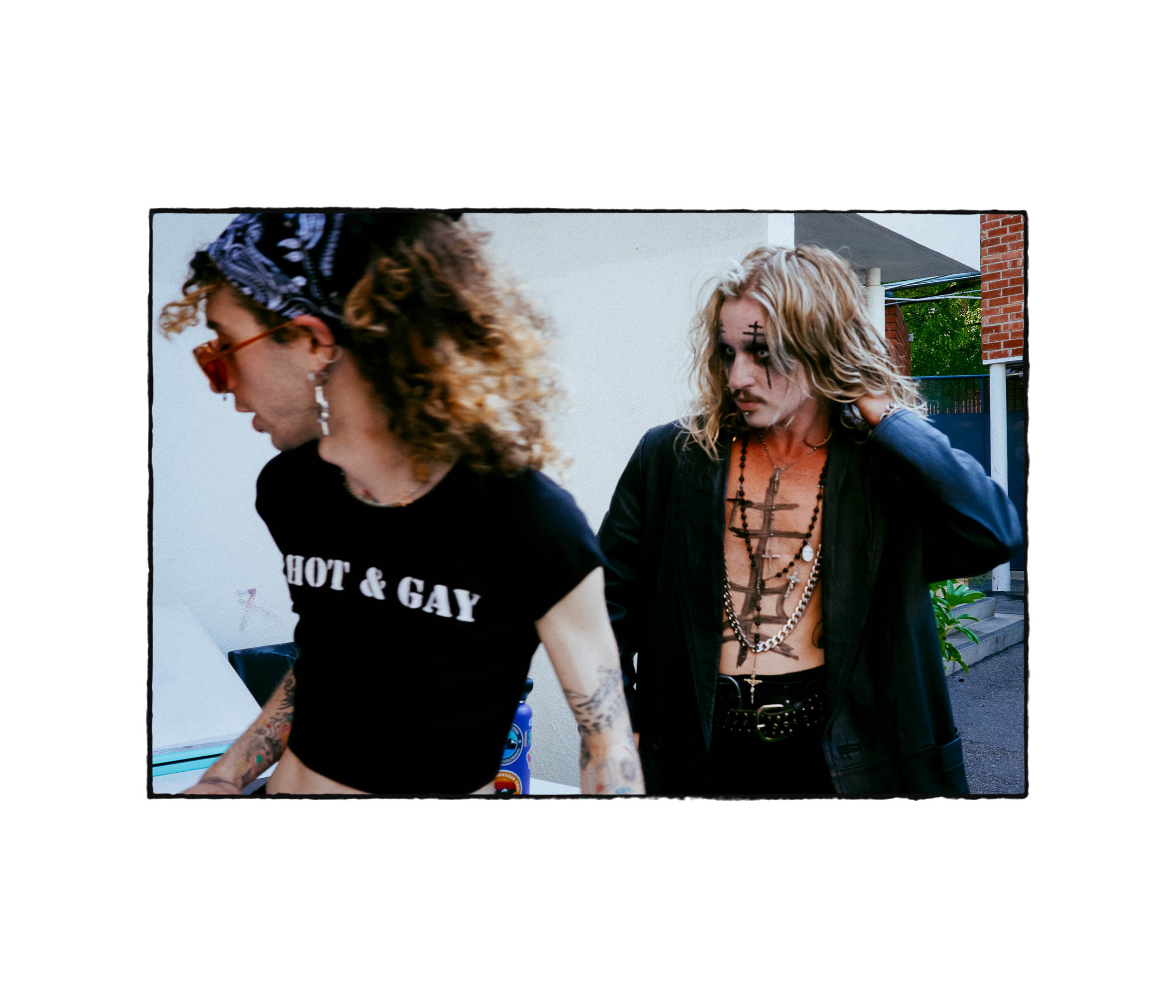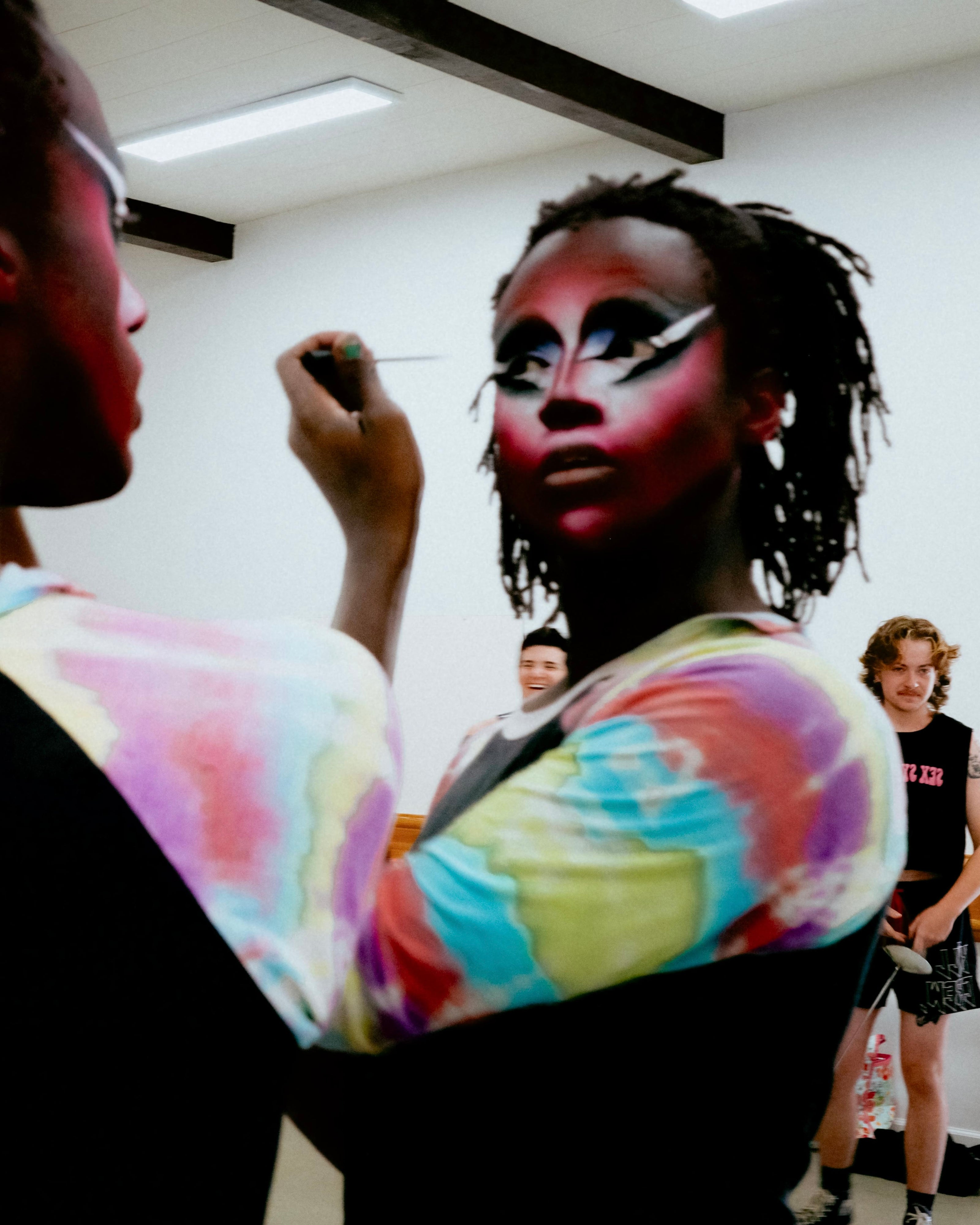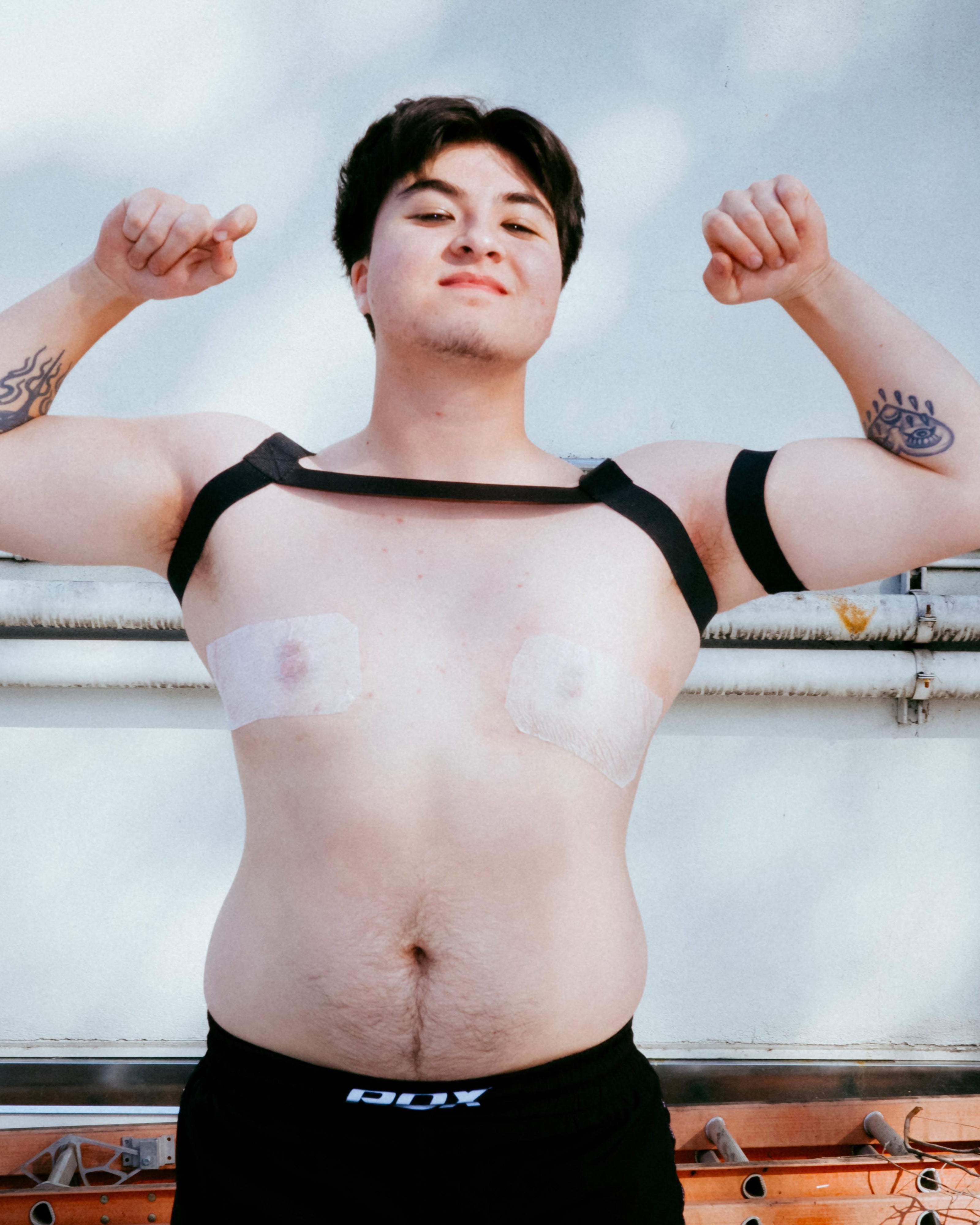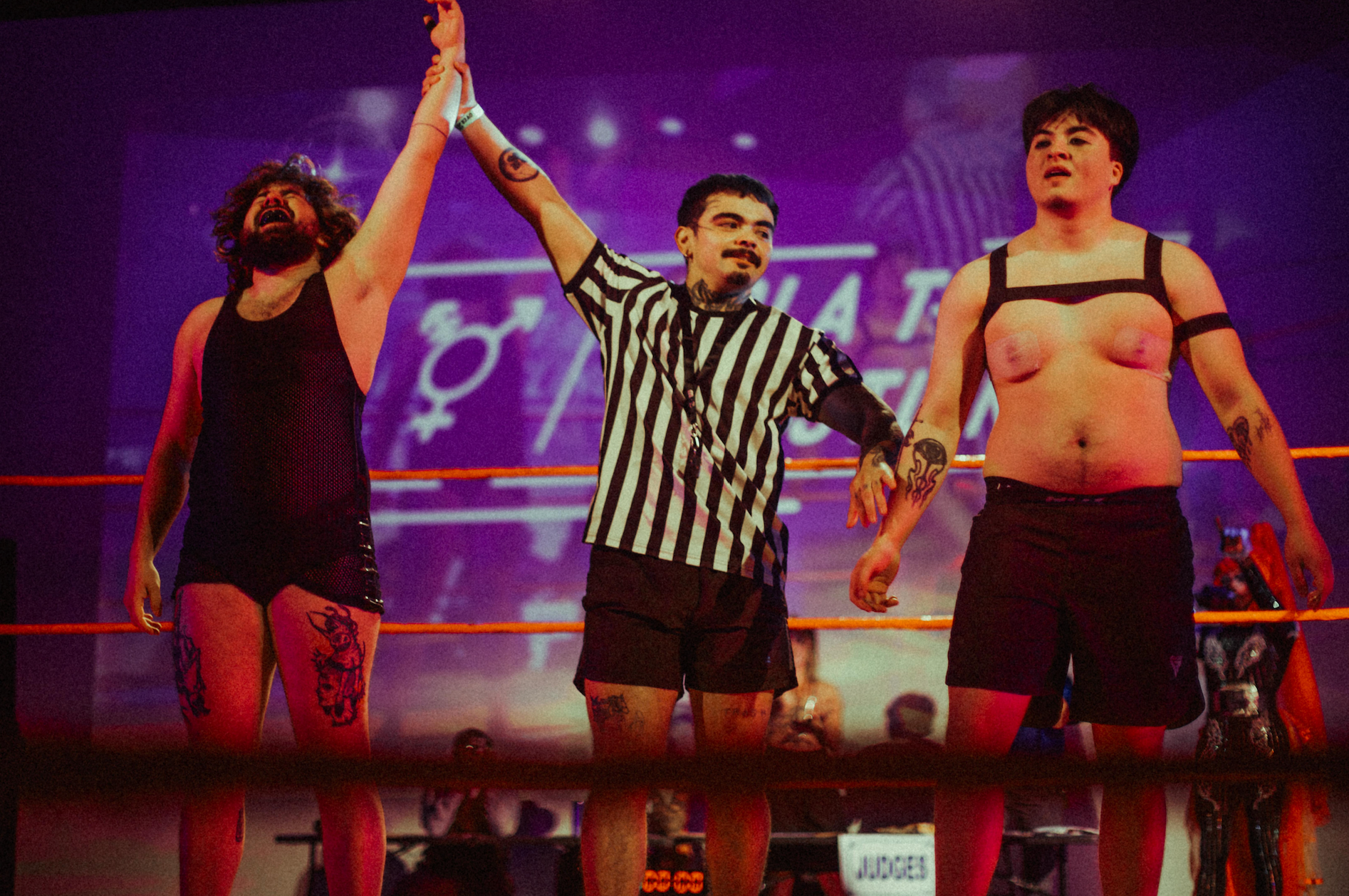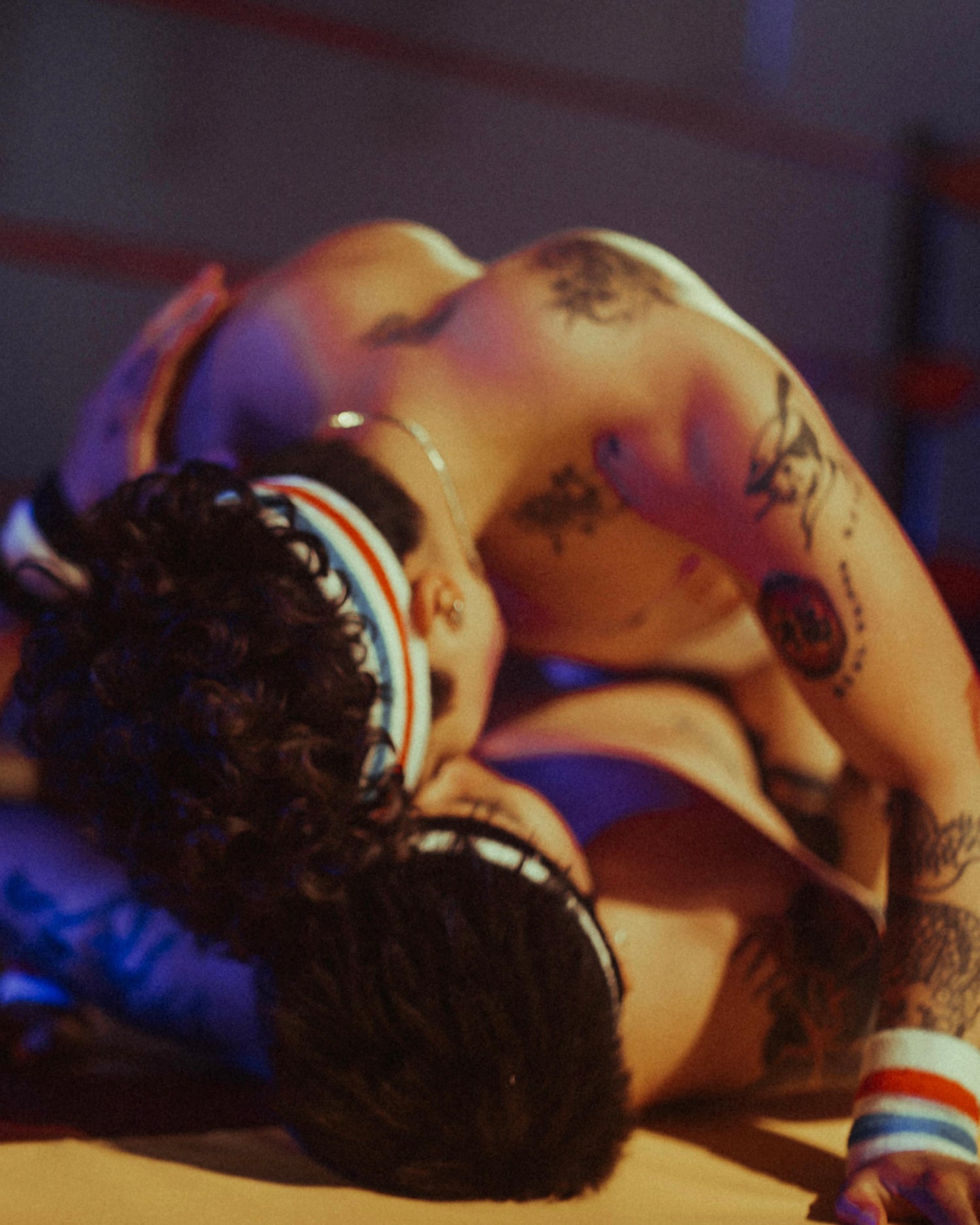
T-Boy Wrestling is in a league of its own
Have you ever watched sports and thought, “that’s gay,” or “I wish they would just kiss!”? If you’re like me, and the answer is yes, then T-Boy Wrestling is the event for you. On a Saturday evening in late March, I pulled up to the Silverlake JCC, a visually unsuspecting venue for this one of a kind event started by and for trans masculine folks, courtesy of Trans Dudes of LA founders Adam Bandrowski & Mich Miller.
PHOTOGRAPHY LUCA MASTRO @lucamastrophoto
TEXT KATIE MANN @trippychickmakeup
T-Boy Wrestling is just barely a year old, this being the second official event. Tonight’s event was added at the last minute, after the previous weekend quickly sold out. It also happens to be the night before Trans Day of Visibility.
“We threw a Dyke Day pre-party last year called ‘Magic Dyke’, a trans artist showcase,” Adam tells me, “I wanted my friend Noah Way to be involved, but he doesn't normally dance or perform live. I said ‘we could just put on tiny shorts and wrestle. And make sure to kiss at some point.’” It was a hit, and the crowd “either thought it was super hot or wanted to be on stage t-boy wrestling themselves,” he says.
Mich explains further, “The idea for T-Boy Wrestling came from a real need to create a space for transmasculine people in a world where we're often excluded from both sports and mainstream media. [Wrestling] spans from campy, high-drag performances to more traditional sportsmanship and athleticism, offering us the opportunity to create a platform that celebrates transmasc creativity, physicality, and visibility.”
While T-Boy Wrestling features classic tales of good versus evil, feats of strength, and eroticism abound, when I ask over Zoom on our initial meeting how much of the show is pre-planned, founders Adam and Mich aren’t quick to reveal too much else, sharing with mischievous smiles that the event is a mixed bag of coordinated skits, stunts, a lot of kissing PLUS real-grappling, tossing, pinning-wrestling.
The event has grown from humble beginnings with mats on gymnasium floors to a full blown wrestling ring, ropes and all. AB: “The event has evolved most obviously in its production value. This came through hard work and collaboration, we do it all kind of DIY-style and with lots of help from our community, so I love when we pull things off successfully and I can tell everyone is proud of it.” MM “[it’s] turned into a full-on celebration of trans identity, body, and community.” With two sold out weekends in a row, the demand is clear.
Prior to the start of the show, I stop by the green room. As I enter, a pair of dueling silver swords are crossed beyond the doorway - two performers practicing a fencing act, naturally. All around the space, the wrestlers are in various states of getting ready. On the floor to my right, a performer named Jamie is sitting against the wall drawing in a sketchbook. He compliments my nails, and I sit with him to talk. Jamie had traveled up from San Diego, he was a last minute entry given the added date. He tells me that there’s no spaces that he’s aware of in his community that are specifically for trans masculine people.
“There’s been drag for the gay male community typically,” he said, “but no trans masculine dominated spaces, especially founded by trans men or masculine people that’s created specifically for fun, expression and performance.”
Across the room, performer Clussy, a dom specializing in clowning, and host Mylique E. Fawcett, are applying elaborate makeup and face paint in the mirror. Clussy tells me they are here to support and perform with their partner, who grew up watching pro-wrestling (like WWE), while Mylique E. Fawcett, a drag queen who describes herself as a bisexual trans ally, was there to host the event. Fawcett first stepped into drag in the pandemic and has since hosted a number of drag events in WeHo, but this will be her first time hosting T-Boy Wrestling. She tells me that she, too, grew up watching pro-wrestling, and was eager to lend her hosting skills to a new stage. Next to them, a performer that goes by Tori Tonka Marmalade applies their makeup and tells me they came for one thing: to wrestle.
I head down from the green room, indulge in an obligatory hot dog, and find a spot in the gym with my girlfriend, squeezing her hand in anticipation. Sitting in the space, my attention is drawn in several directions. Attendees shifting in their seats, ring girls walk around holding signs that say “KISS!” And “SHOUT IF YOU LOVE TBOYS!”
A panel of judges waits in anticipation in front of a large projection screen, the T-Boy Logo front and center. The night opens with what I think at first is just a walk-out song, but ends up being a full blown lip-syncing and wrestling performance to Amyl & the Sniffers’, “U Should Not Be Doing That.” The performers could pass for members of an 80s hair metal group, with dramatic makeup glittering under stage lights. They toss each other across the ring, and drop with booming thuds. The crowd, as expected, is going wild. For me, this markedly sets the tone for the evening. This is a place where you can be anyone, wear anything, show your strength and be celebrated for it… exalted even.
Soon after the event begins, the gym is packed with attendees. Every once in a while I turn to see more and more people filling the space with eyes wide, clapping, screaming, and snapping. The number of acts to follow truly is a mix of what appears to be real wrestling and slap-stick burlesque loosely centered around the idea of wrestling. There was a White Lotus skit based on that scene with this seasons’ brothers, for example. The crowd relishes whatever we are served. In many ways, this feels like any other sporting event. There’s even a kiss cam! Except, instead of a camera placed on an unsuspecting duo, the TBW version is more like... an eruption of couples passionately embracing, reminiscent of a make-out scene in a John Waters film - willing participants in a group exhibition. This is full camp.
To me, WWE and pro wrestling always felt like a version of camp. But for many kids of the 80s and 90s, it offered figures like Hulk Hogan, the Rock, and “Macho Man” Randy Savage as the branded role models of masculinity.
T-Boy Wrestling proves pleasantly void of that standard toxic variety. One could argue TBW provides an alternative: aspirational masculinity, role models by and for the queer and trans community. To Adam, it’s even more; “[it] means a lot to me. I feel like every wrestler is a part of this giant family. T-Boy Wrestling is a chance to relive our adolescent years - to experience being on a team and reclaim the silly, boyish joy that we never got to have.” TBW seamlessly combines the pomp and energy of pro-wrestling with high camp performance in a way only the gays could. It did feel like a John Waters film. As fans of the director know, his works are often about outcasts - the freaks, the loners, the misunderstood - and how they can prevail through community and organized action without compromising who they are. I realized, much of my life feeling like an outcast myself, that what attracts me to these films, similarly to TBW, was a sense of belonging.
MM - “It’s about visibility and inclusion for trans men, who make up less than 1% of the population and are often left out—whether it’s from sports competitions, mainstream narratives, or even queer subcultures like drag. We love Drag Race and appreciate the visibility it brings to drag culture, but the show continues to largely exclude trans men and drag kings from the conversation. Anti-trans legislation continues to block trans people, especially youth, from participating in sports—this is happening from grade school levels to highest level competitions like the Olympics. T-Boy Wrestling creates a space where trans men aren’t just included, they're centered, celebrated, and given the freedom to express themselves on their own terms”
I notice a person sitting in the seat behind me, their body language thrust forward towards the ring and a glint in their eyes that I could only compare to pure childlike wonder. They are alone and tell me that they are attending T-Boy Wrestling for the first time. When I asked them what this space means to them, the answer was simple: a sense of community and the opportunity to be themselves with others rather than in private. They candidly share that in their every day life and especially at work, they are still referred to by their deadname, an experience that can be both deeply traumatic and isolating. In this space though, their guard is down and their joy is contagious. They are who they say they are, and we all see them without pretense. This individual sense of belonging that deeply relies upon the connection to others is, to put it incredibly simply, a universal human need. Not just to see others like you, but to be in the world with them without fear. That Saturday night before Trans Visibility Day, the sense of belonging and connection was not only palpable, but the most expressed sentiment of the evening from those I had the privilege of speaking to. Adam echoes this when I ask his hopes for the future of TBW. “What I really want out of TDLA and T-Boy Wrestling is for trans people to be connected to each other, to have trans friends and community around them all the time. I want people to find love and best friends and for it to be something we all look back on fondly one day as our young crazy gay adventure.” Mich continues, “It’s a source of joy and empowerment despite our political climate—a reminder that we get to define strength and masculinity on our own terms. It’s also just incredibly fun and deeply healing. I hope it keeps inspiring more trans spaces and helps trans people feel empowered to live their fullest lives. We deserve so much more than just the traditional support group model—trans men and all trans people should have friends, family, real connections, playful moments, sexy experiences, and everything in between.”
Thank you Adam, Mich, and all of the performers and attendees I spoke to at the event. Catch T-Boy wrestling next in San Francisco on June 21st and in NYC on August 9th. Follow @tboywrestling and @transdudesofla for more events, updates and resources.
Anti-trans legislation continues to block trans people, especially youth, from participating in sports—this is happening from grade school levels to highest level competitions like the Olympics. T-Boy Wrestling creates a space where trans men aren’t just included, they're centered, celebrated, and given the freedom to express themselves on their own terms”
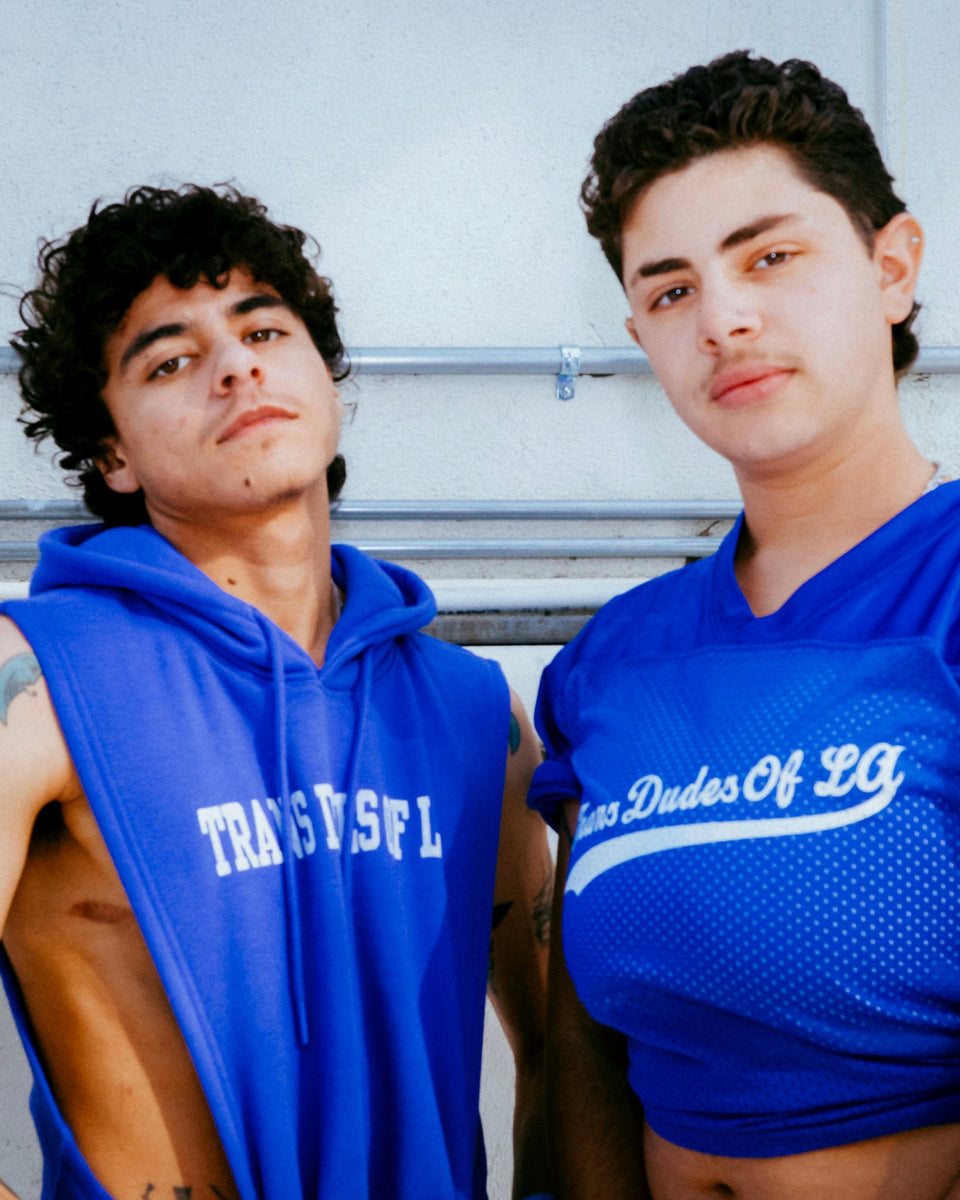
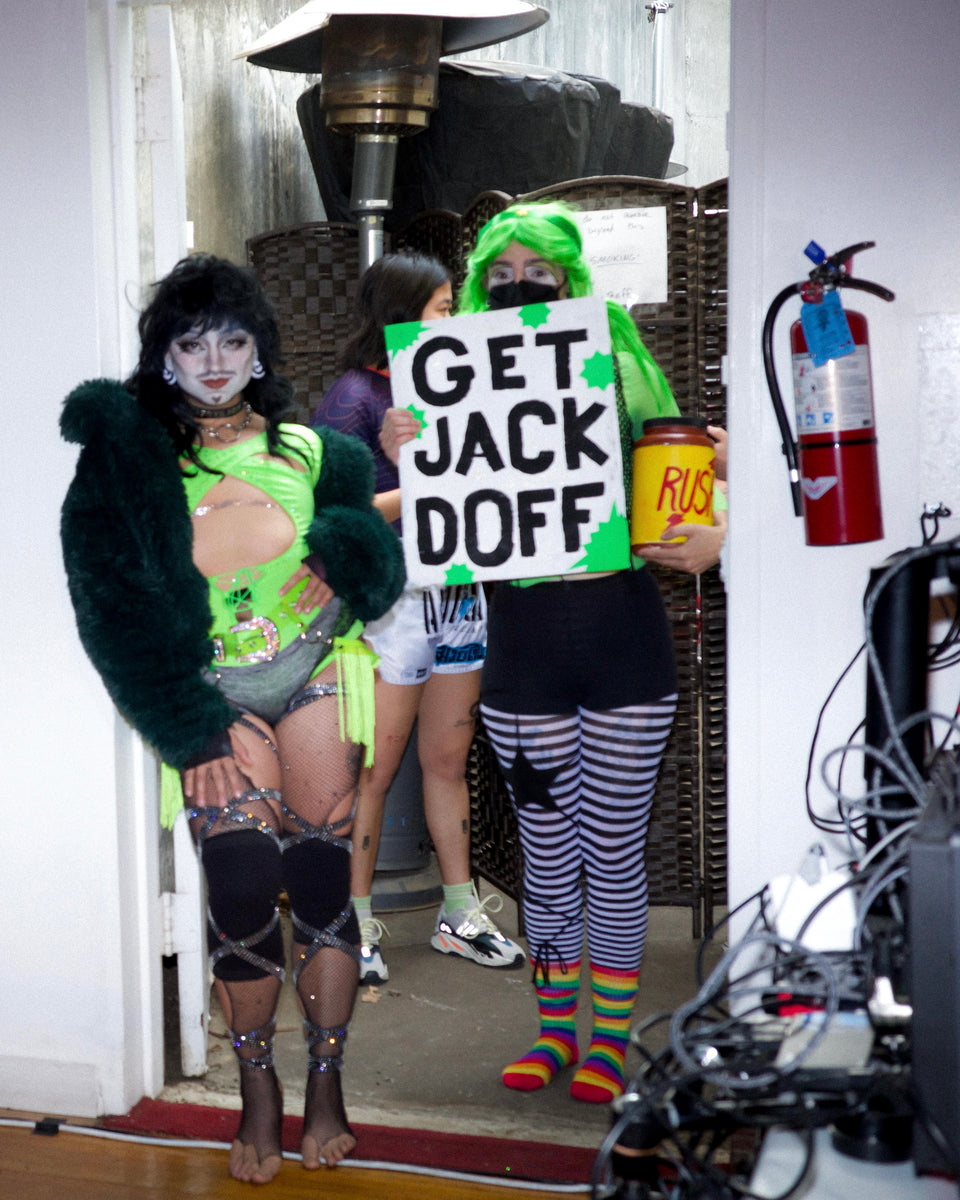
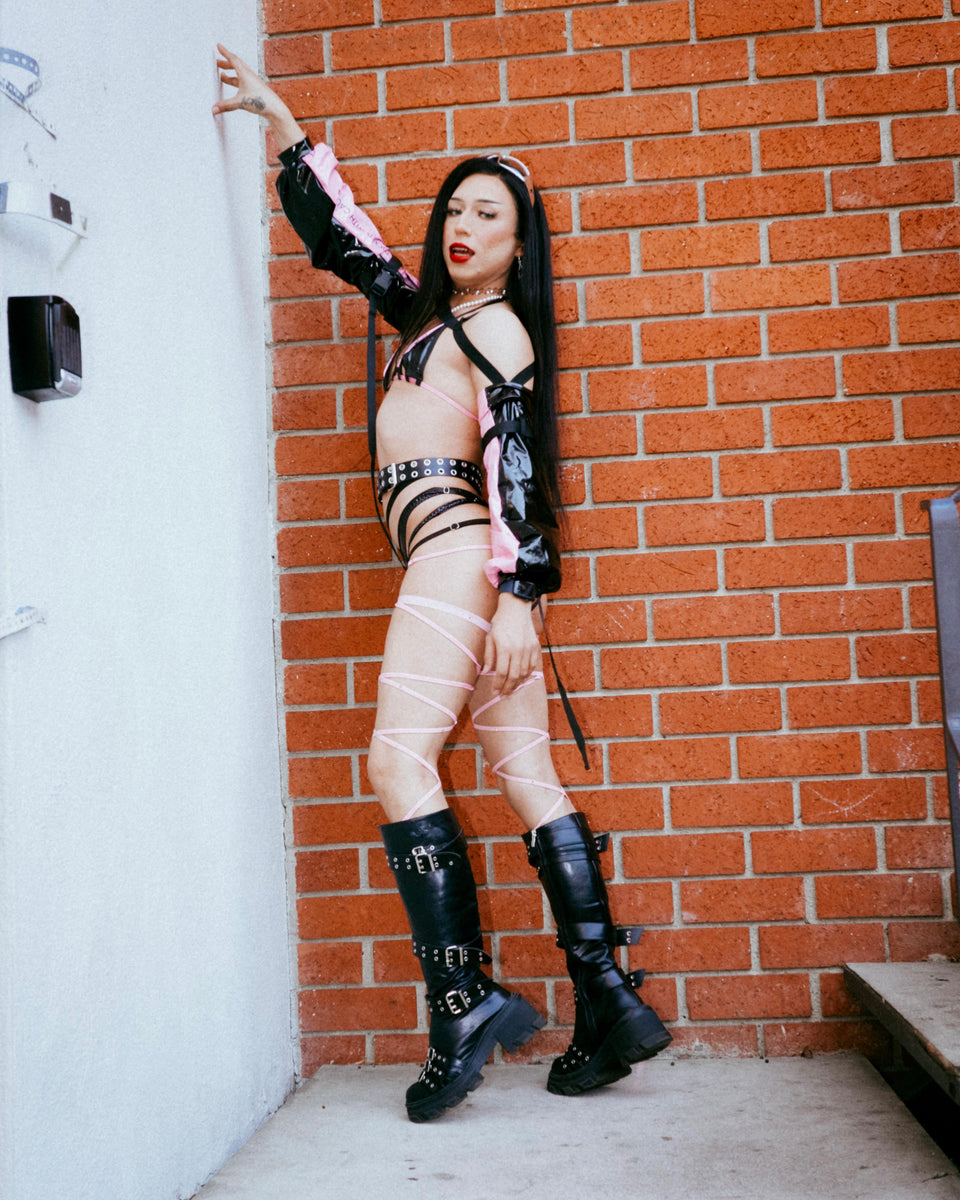
caption 3
